- Home
- Diana Palmer
Nora Page 21
Nora Read online
Page 21
“Yes, I know. Chester heard it from a relative of hers, not long ago,” she said gently. “Your Mr. Langhorn is welcome here, Melly. Not for all the world would I put you in the position that Nora was placed in, having to run away in secret to marry. It has taught me a sad lesson.”
“I, too, am sad about Nora. Her life has not been a happy one this past year.”
Helen smoothed back her daughter’s dark hair with a loving hand. “Nor has yours. But I see happier times ahead for us all, my dear. And Christmas is coming fast.”
Melly grimaced. “It will not be a happy Christmas for our poor Nora. Or for Mr. Barton.” She frowned. “I wonder where he has gone.”
CAL BARTON HAD GONE TO EL PASO. More specifically, he had gone to Latigo.
A pretty young woman with golden hair and big brown eyes looked at him through the screen door when he came up onto the porch. She stepped outside, and that was when he saw the bundle she was carrying. He stopped dead, his lean, dark face briefly tormented as he realized that she had a baby in her arms.
Amelia Howard Culhane stared at the lithe, silver-eyed stranger curiously. Her father-in-law, Brant, mother-in-law, Enid, and brother-in-law Alan all had dark eyes and hair. But King’s eyes were silvery gray, several shades lighter than this man’s. And he had the same lithe, rodeo cowboy physique, with long legs and wide shoulders and narrow hips. He even had the faint arrogance she associated with her husband.
“Why, you must be Callaway!” she said suddenly as she remembered the description of him she had heard early in her marriage. “I’m Amelia, King’s wife. And this is our son, Russell,” she said proudly, smiling at the tiny thing in the blanket. “Do come in.”
He took off his hat, belatedly, and ran a hand through his thick, dark hair as he followed her into the house. His bag was still in the carriage he’d hired. He’d turned that over to the stableboy, with instructions to bring the bag up to the house and leave it on the porch for him. It felt strange to be at home again after such a long absence.
“Enid!” Amelia called. “Look who’s come to see you!”
A small, dark-eyed woman came out of the kitchen and stopped in her tracks as she saw the newcomer.
“Oh, my dear,” she said softly, and opened her arms.
Cal lifted her bodily off the floor and hugged her warmly. His little mother. He’d missed his family so much. And now he needed them more than ever before.
“It’s good to be home,” he said, putting her down with a wan smile.
“You’ve been away for years, it seems,” she chided, “and hardly ever a letter! Can you stay until after the New Year?”
He shrugged. “I might as well,” he said. “We’re waiting for a major part on the drill, and we can’t get one until the first of the year.”
“Why not use a part off another one?” she suggested sagely.
“Because this is a new type of drill. The old ones won’t fit it, more’s the pity. My partner is staying there to protect our interests until we can start again. Hopefully it will only be a delay of two or three weeks. I must learn to be patient.”
“Brant and Alan and King will be glad to see you,” she said. “They could never understand why you wouldn’t settle here and be part of the ranch business.”
He grinned. “Latigo is King’s. We all know that.” He glanced at the woman standing beside his mother and frowned slightly. “King, married and a father,” he said, shaking his head. “I couldn’t believe it when Alan told me he’d married.”
“Neither could I,” Amelia offered, tongue in cheek. “We had a very rough beginning. But Russell has been our greatest joy. He is only two weeks old,” she added.
Cal didn’t touch the child. He tried to, but his face was rigid and he forced a smile. “I’m no good with children.” He shrugged. “But he’s sweet.”
“He’s the image of his father,” Amelia said dreamily.
“King was never a baby,” Cal corrected. “He was born throwing orders around and breaking horses.”
“So I’ve heard,” Amelia replied with twinkling eyes.
“Come and have some cake with us,” Enid invited, pushing back her sweaty, gray-streaked hair. “I’ve just been cleaning the stove.”
A reminder that she did her own housework, and it hurt. It brought back thoughts of Nora that were painful.
They talked a little until the coffee boiled and the cake was sliced onto a china plate. Then the baby cried, and Amelia announced that he needed changing and went down the hall with him.
Enid sat down with her son and the tray of coffee and cake that he’d carried into the parlor for her.
“Now,” she said to Cal. “Tell me why you’ve come home, in mourning and wearing a wedding band.”
He caught his breath audibly. He’d forgotten the band, which was one of a set he’d purchased in St. Louis when the train stopped there, figuring that a ring would make Nora less conscious of her condition.
He looked at the ring long and hard.
“You’ve married,” Enid prompted.
He looked down, shamefaced. “Yes.” He couldn’t bring himself to tell her the whole sad tale. “She…lost our baby this week.”
“And you left her alone?”
“She didn’t want me with her,” he said. “It has been difficult. She’s an eastern woman, a socialite. She never wanted to marry me in the first place, but I…compromised her. I took her back to the ranch where I was working as foreman and installed her in the cabin. She had never cooked or cleaned.”
Enid was getting a sad picture. “And…?”
“The lifting was too much for her,” he said coldly, not sparing himself. “Beyond that, she contracted a fever in Africa. It recurs. She became very ill and lost the baby.”
“There is so much more,” Enid said solemnly. “Isn’t there?”
He smiled wanly. “I discovered too late that I love her.”
“And she?”
“Oh, she hates me,” he said pleasantly. “I cannot blame her. I dragged her into a life of drudgery to teach her humility. But it was I who learned the lesson.”
“A socialite living in a foreman’s cabin,” Enid said heavily. “How could you not bring her here, properly, to your home?”
“I could not because she thinks she’s married to a ranch foreman named Callaway Barton,” he said with a mocking smile. “Because of the combine business, I couldn’t tell her uncle who I was, much less could I tell her. She thought me a poor, dirty cowboy and bemoaned the fate that shackled her to me.”
“Oh, Cal,” his mother said, shaking her head. “You have made a mess of it.”
“Indeed I have. She would not even speak to me. I had too much to drink and went to Beaumont. From there, I had nowhere else to go. Except here.”
“Is there no chance for the two of you?” Enid asked.
His broad shoulders rose and fell. “She will have gone back to her parents in Virginia by now. Her father is the most appalling snob, and her mother does what she is told.” He looked up with twinkling eyes. “Unlike the women in this family.”
“Oh, I never did what your father told me to,” Enid agreed. “Eventually he realized it and stopped trying to boss me. Amelia is just the same,” she added with glee. “It’s a treat to watch King try to get his way with her.”
“She seems very gentle,” he began.
“Looks,” Enid said, “can be deceptive.”
The sound of horses outside brought them both to the front porch, where a tall, lithe man with dark hair and silver-gray eyes dismounted beside a slighter, older one.
“King! Father!” Cal greeted, going forward to hug them.
King’s eyes, so pale a gray that they seemed almost transparent, smiled into his brother’s. “I’m glad you came home at last,” he said. “How goes the oil business?”
“Slowly,” Cal replied.
“Good. You can stay for Christmas.” Brant Culhane chuckled, daring his son to refuse.
“I
might as well,” Cal said. “I have very little else to do. I’ve quit the Tremayne ranch.”
“You accomplished the changes, then?” Brant asked solemnly.
“As many as possible. Now it’s a matter of time. Chester seems to be on the right track. At least I think he is. It was a good idea, to let me go as a foreman and ease him into the changes, rather than send orders to that effect,” Cal replied. “It also gave me the opportunity to be a short distance from Beaumont and the drilling rig. Pike can handle things until I return.”
“Is he trustworthy?” King asked as they went into the house.
“That I don’t know,” Cal murmured. “There’s something about him that makes my neck hair bristle. I’ll watch him. But his character hardly matters if we’re sitting on another dry hole.”
“There you are!” Amelia laughed, coming forward with the baby to greet King.
The change in the older man was astonishing. The hard, ruthless look fell away from him. He smiled at Amelia, and there was such a radiance about him that Cal was shocked. In all their lives together, he’d never seen that sort of expression on his older brother’s face.
“Hello, imp,” King murmured, and bent to kiss Amelia with tender affection. His lean hand touched the tiny head in her arms. “How’s my Rusty?”
“Don’t call him that!” Amelia groaned.
“He’s my son, I can call him Rusty if I like,” he reminded her teasingly. “Besides, he’s going to have red highlights in his hair, if it isn’t red altogether. Your mother was a redhead, you once told me.”
“Yes, she was,” Amelia had to confess. She adored King with her eyes. “You look tired, my darling.”
He smoothed back her hair. “So do you, little one,” he said deeply. “You had no sleep last night at all. He was fussy.”
“And you sat up with me,” she reminded him warmly. “But I didn’t have to go out and work all day. You did.” She caught his hand with her free one. “Come along and I’ll pour coffee and cake into you. It will refresh you no end. Enid’s made a lemon cake…!”
“They go on like that all the time,” Brant chuckled, watching them walk away. He shook his head. “Never saw anything like it.”
Neither had Cal. He felt more empty than he ever had, because now he could see what it would have been like if he and Nora had been close, if they’d had their baby and were married because they loved each other. He loved her, but she’d never loved him. If she had, his supposed profession as a working man would not have mattered to her. It hurt him to know that.
Brant talked about the ranch as they joined the others.
“Alan went back to see that girl outside Baton Rouge,” he said amusedly. “Looks like it may be serious this time.”
“Yes, and he’s talking about a career in banking, in Baton Rouge. I don’t think he’s going to settle here,” Enid said over her shoulder as she poured coffee into more cups.
“I never thought he would,” Cal remarked. He sat down again and sipped the rich black liquid. He glanced at his brother with warm eyes. “We’ve all known forever that Latigo would only belong to King. His heart lives here.”
“In more ways than one,” King replied quietly, with possessive eyes on his wife and child as he lifted his cup to his lips.
Enid picked up her own cup. “Cal is married.”
“King!” Amelia exclaimed, grabbing at a napkin to mop up the scalding coffee that had landed on his jeans.
King was staring at his brother, oblivious to the coffee. “What the hell did you say!” he burst out. “Married, and you never brought your wife to us?”
Cal glowered in his mother’s direction. “I couldn’t bring her here,” he said before the question had completely escaped King’s tight lips. “I was playing at being a ranch foreman, and she took it for the real thing. She’s a rich easterner who had a problem with her attitude toward lesser beings.” He shifted uncomfortably and averted his eyes.
“He was teaching her a lesson by letting her live as a ranch foreman’s wife,” Enid continued. “She taught him one instead and went home. He got drunk.”
“Thank you, Mother,” Cal muttered.
“You’re welcome, my dear,” she said sweetly.
King knew there was more than that, but Cal looked shattered enough. “Regardless of the circumstances, it’s nice to have you home,” he said firmly.
Enid knew she was being censured, without a word being spoken by her taciturn son. She grinned at him. “No need, King, dear, I’m finished.”
He chuckled. “Harridan,” he accused.
She nodded. “Living with your father caused it.”
“That’s right,” Brant sighed, “blame it on me.”
Cal felt secure again, welcome and safe. He sat back in his chair with a quiet sigh. But the smile on his face wasn’t a real one.
Chapter Fifteen
BY THE TIME CHRISTMAS DAY came around, on a Tues day this year, there was a big change at the Tremayne ranch house. Nora had forsaken her stylish eastern dresses for plainer clothing, and she was doing most of the cooking and all the housework. Not that Helen and Melly and Chester treated her like a domestic; she was still one of the family and joined them at the table and in the parlor. But in all other respects, she lived befitting her new status in life.
She had become adept at ironing. Her hands were equally nimble at milking cows and churning the milk to butter. She could kill a chicken, and clean it—that had been a shattering experience, but with Helen’s guidance, she conquered her squeamishness and did what she had to. She no longer had qualms about get ting dirty, something she had once had a horror of. She helped plan a spring wedding for Jacob and Melly, and she was slowly learning how to sew.
Acquiring these skills had worked another change in her. She was less nervous and high-strung. She felt different, free of the shackles of her parents’ attitudes and rigid social class mentality. Helen had changed her attitude as well. She felt bad about her previous prejudice against Jacob Langhorn, and he and his son were now welcome at the ranch.
Melly was giving Nora riding lessons. She still wasn’t good at it, but she could stay on the animal’s back. Often she thought of Cal and wondered where he was, how he was. He had not tried to contact her after she had sent him away. Of course, she had told him she was going back to Virginia so he would not know she was still with her aunt and uncle. She worried about where he was, and how he was making his living.
She felt some guilt over costing him a job he had enjoyed. She wondered if he blamed her because she hadn’t told him the truth about her condition. Melly had remarked that Cal was shattered when her mother gave him her cold message. Her only thought had been for her own pain. She was sorry now that she’d refused to see him. As Melly had said, it was Cal’s baby, too. He would have felt sad about that loss and probably guilty, coming home to find Nora in that terrible condition after their argument.
He was not a heartless man, as she knew so well. Possibly he had not meant many of the things he said. Her aunt had caught him on the raw with her comments about Nora’s lack of help and with her well-meant interference in cabling Nora’s parents. But Nora missed her husband more than she thought she ever might. Her life had never been so empty. All the wealth and status in the world meant nothing now. If her parents had still wanted her, she doubted she would have gone back to them. In her heart she couldn’t stop hoping that Cal might come back one day.
Finally driven to desperation by the lack of news, she asked her aunt about him. “Have you heard from Cal?” Nora wondered as they laid out Christmas dinner.
The apparent nonchalance of that question didn’t fool Helen. “Why, yes,” she said.
Nora’s hands shook. She put the plates down carefully. “How is he?”
“He’s with his family,” Helen told her quietly, pausing to set the dressing in its pretty china bowl on the table. “He said that he hoped you had recovered and that you were regaining your strength.”
Nora
’s eyes brightened. For the first time since her ordeal, she looked alive. “Did he?”
“My dear,” Helen said gently. “Do you miss him so much?”
Nora bit her lip and averted her eyes. “I was not fair to him. He knew nothing of my condition, and I had been too proud to tell him. We had a vicious quarrel before he left. I remembered too well some of the cruel things he said to me, and I refused to listen when he tried to speak to me. I was hurt.”
“Of course you were.”
She straightened the tablecloth. “There’s something you don’t know,” she said. “The real reason we were married.”
“Because of the baby?”
Nora’s eyes came up, startled but resigned, a second later. “Yes.”
“As I thought.”
“He didn’t love me,” she said dully. “He told me so, before he left. He said that our marriage was a mistake. He was ashamed of me. So ashamed that he had not even told his family about me.” Her eyes closed as she remembered how he had said it, the coldness of his deep voice outlining her faults for her. “Perhaps he was right. I felt very superior to other people.” She smiled wanly as she looked up. “I have learned a painful lesson. Decency cannot be measured in dollars.”
Helen’s eyes sparkled. “I had to learn the same lesson when I came here to live with Chester. I, too, came from the stock of European royalty, and I behaved as if I had. It’s only recently that I’ve learned to accept people without looking first at their clothing and social status.”
“My father will always judge people that way,” Nora said sadly. “And my mother will never question anything he does. I miss my parents. But I miss Cal, oh, so much more.”
“It is sad that you could not write to him,” Helen replied, trying not to remember her part in their problems. She had meant well, but her interference had been costly to her niece.
Nora looked at her, thinking. “But perhaps I could write to him….”
“I meant that his letter had no return address at all,” Helen replied with a sad smile. “And a postmark that was not even legible.”

 A Cattleman's Honor
A Cattleman's Honor For Now and Forever
For Now and Forever Texas Proud and Circle of Gold
Texas Proud and Circle of Gold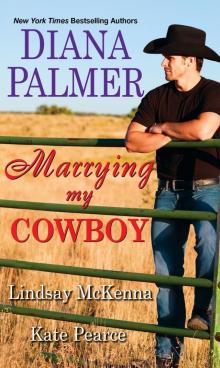 Marrying My Cowboy
Marrying My Cowboy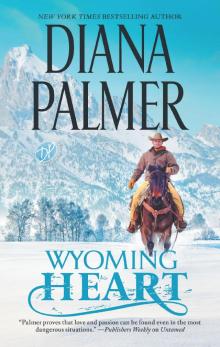 Wyoming Heart
Wyoming Heart Christmas Kisses with My Cowboy
Christmas Kisses with My Cowboy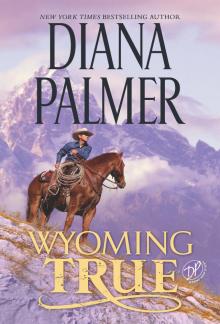 Wyoming True
Wyoming True The Rancher's Wedding
The Rancher's Wedding Mercenary's Woman ; Outlawed!
Mercenary's Woman ; Outlawed! Long, Tall Texans: Stanton ; Long, Tall Texans: Garon
Long, Tall Texans: Stanton ; Long, Tall Texans: Garon Lawless
Lawless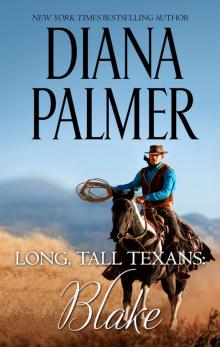 Blake
Blake Escapade
Escapade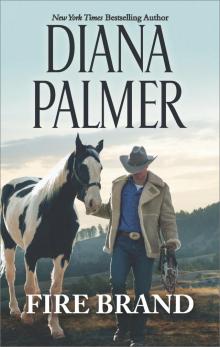 Fire Brand
Fire Brand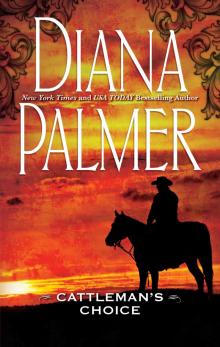 Cattleman's Choice
Cattleman's Choice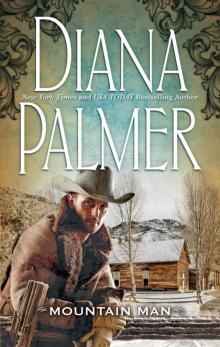 Mountain Man
Mountain Man Long, Tall and Tempted
Long, Tall and Tempted A Love Like This
A Love Like This Miss Greenhorn
Miss Greenhorn Magnolia
Magnolia Lord of the Desert
Lord of the Desert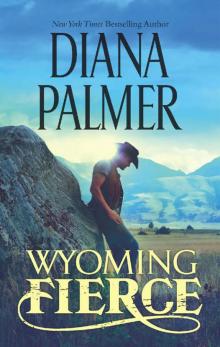 Wyoming Fierce
Wyoming Fierce True Colors
True Colors Calamity Mom
Calamity Mom The Pursuit
The Pursuit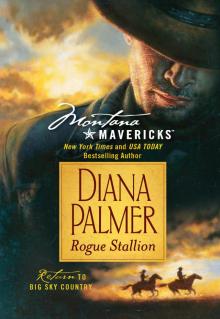 Rogue Stallion
Rogue Stallion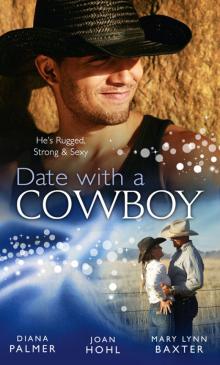 Date with a Cowboy
Date with a Cowboy Heart of Winter
Heart of Winter Friends and Lovers
Friends and Lovers Love on Trial
Love on Trial Boss Man
Boss Man Callaghan's Bride
Callaghan's Bride Before Sunrise
Before Sunrise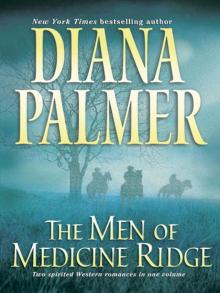 The Men of Medicine Ridge
The Men of Medicine Ridge Texas Proud
Texas Proud Wyoming Tough
Wyoming Tough Passion Flower
Passion Flower Maggie's Dad
Maggie's Dad Donavan
Donavan The Rancher & Heart of Stone
The Rancher & Heart of Stone Long, Tall Texans: Tom
Long, Tall Texans: Tom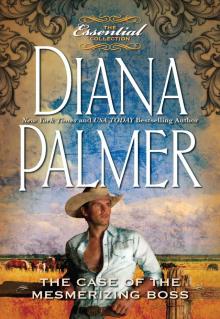 The Case of the Mesmerizing Boss
The Case of the Mesmerizing Boss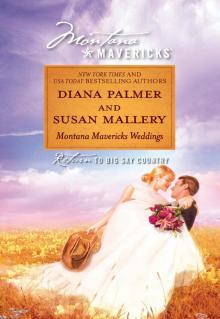 Montana Mavericks Weddings
Montana Mavericks Weddings Redbird
Redbird Wyoming Strong
Wyoming Strong Darling Enemy
Darling Enemy Love by Proxy
Love by Proxy Coltrain's Proposal
Coltrain's Proposal The Best Is Yet to Come & Maternity Bride
The Best Is Yet to Come & Maternity Bride Rawhide and Lace
Rawhide and Lace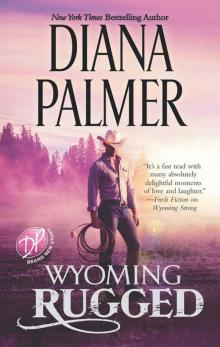 Wyoming Rugged
Wyoming Rugged Patient Nurse
Patient Nurse Undaunted
Undaunted Long Tall Texans Series Book 13 - Redbird
Long Tall Texans Series Book 13 - Redbird Outsider
Outsider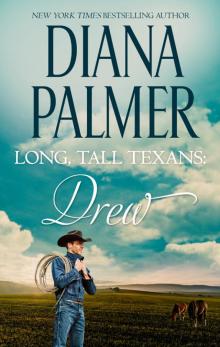 Long, Tall Texans: Drew
Long, Tall Texans: Drew Long, Tall Texans--Christopher
Long, Tall Texans--Christopher Merciless
Merciless A Match Made Under the Mistletoe
A Match Made Under the Mistletoe Evan
Evan Hunter
Hunter Now and Forever
Now and Forever Hard to Handle
Hard to Handle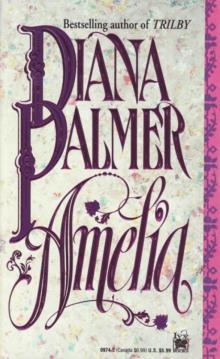 Amelia
Amelia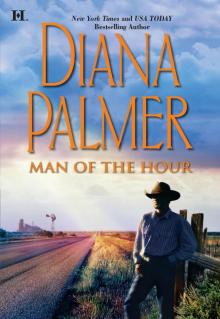 Man of the Hour
Man of the Hour Invincible
Invincible The Maverick
The Maverick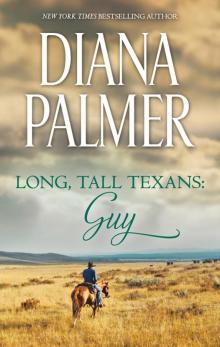 Long, Tall Texans--Guy
Long, Tall Texans--Guy Noelle
Noelle Enamored
Enamored The Best Is Yet to Come
The Best Is Yet to Come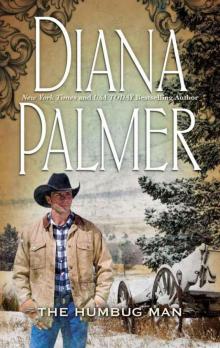 The Humbug Man
The Humbug Man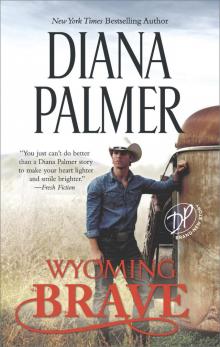 Wyoming Brave
Wyoming Brave Calhoun
Calhoun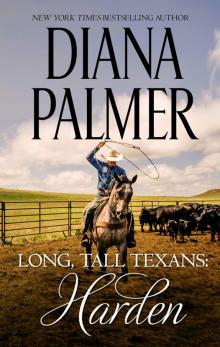 Long, Tall Texans--Harden
Long, Tall Texans--Harden The Reluctant Father
The Reluctant Father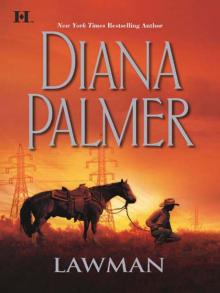 Lawman
Lawman Long, Tall Texans: Hank & Ultimate Cowboy ; Long, Tall Texans: Hank
Long, Tall Texans: Hank & Ultimate Cowboy ; Long, Tall Texans: Hank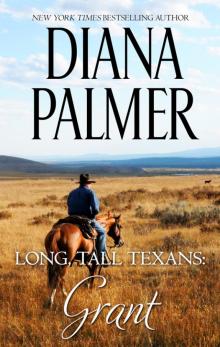 Grant
Grant Nelson's Brand
Nelson's Brand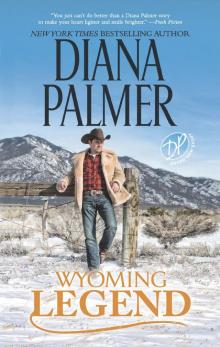 Wyoming Legend
Wyoming Legend Diamond Spur
Diamond Spur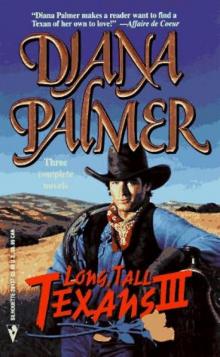 That Burke Man
That Burke Man Wyoming Bold (Mills & Boon M&B)
Wyoming Bold (Mills & Boon M&B) Heartless
Heartless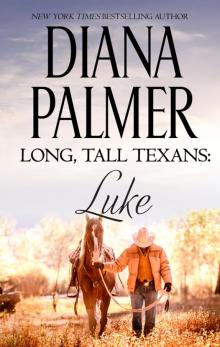 Long, Tall Texans--Luke
Long, Tall Texans--Luke To Have and to Hold
To Have and to Hold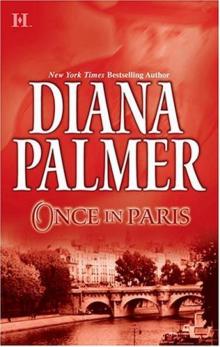 Once in Paris
Once in Paris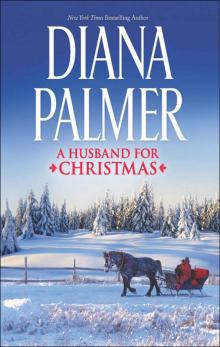 A Husband for Christmas: Snow KissesLionhearted
A Husband for Christmas: Snow KissesLionhearted Night Fever
Night Fever Beloved
Beloved The Australian
The Australian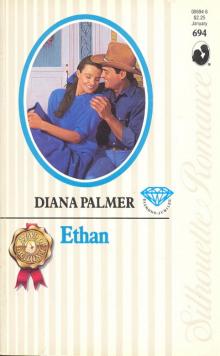 Ethan
Ethan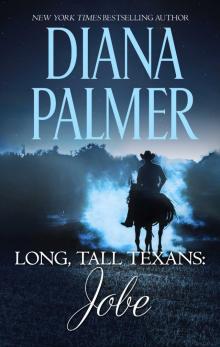 Long, Tall Texans: Jobe
Long, Tall Texans: Jobe Bound by Honor: Mercenary's WomanThe Winter Soldier
Bound by Honor: Mercenary's WomanThe Winter Soldier Tender Stranger
Tender Stranger After Midnight
After Midnight September Morning
September Morning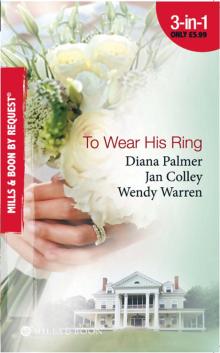 To Wear His Ring
To Wear His Ring Heartbreaker
Heartbreaker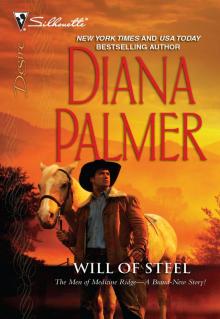 Will of Steel
Will of Steel Dangerous
Dangerous Fit for a King
Fit for a King Diamond in the Rough
Diamond in the Rough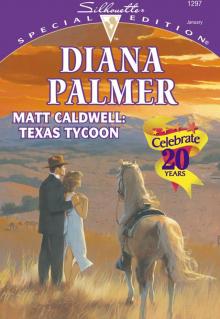 Matt Caldwell: Texas Tycoon
Matt Caldwell: Texas Tycoon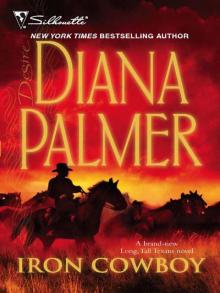 Iron Cowboy
Iron Cowboy Fire And Ice
Fire And Ice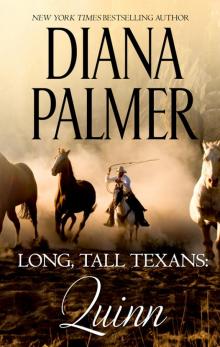 Long, Tall Texans--Quinn--A Single Dad Western Romance
Long, Tall Texans--Quinn--A Single Dad Western Romance Montana Mavericks, Books 1-4
Montana Mavericks, Books 1-4 Denim and Lace
Denim and Lace Eye of the Tiger
Eye of the Tiger The Princess Bride
The Princess Bride Long, Tall Texans: Rey ; Long, Tall Texans: Curtis ; A Man of Means ; Garden Cop
Long, Tall Texans: Rey ; Long, Tall Texans: Curtis ; A Man of Means ; Garden Cop Justin
Justin Nora
Nora The Morcai Battalion
The Morcai Battalion Heart of Stone
Heart of Stone The Morcai Battalion: The Recruit
The Morcai Battalion: The Recruit To Love and Cherish
To Love and Cherish Invictus
Invictus Regan's Pride
Regan's Pride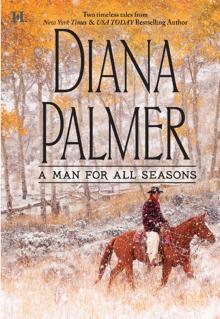 A Man for All Seasons
A Man for All Seasons Sweet Enemy
Sweet Enemy Desperado
Desperado Lacy
Lacy The Winter Man
The Winter Man Diamond Girl
Diamond Girl Man of Ice
Man of Ice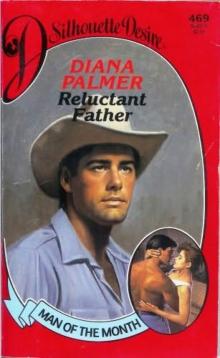 Reluctant Father
Reluctant Father Christmas with My Cowboy
Christmas with My Cowboy Love with a Long, Tall Texan
Love with a Long, Tall Texan Wyoming Bold wm-3
Wyoming Bold wm-3 King's Ransom
King's Ransom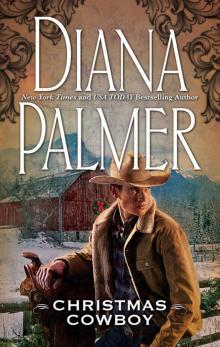 Christmas Cowboy
Christmas Cowboy Heart of Ice
Heart of Ice Fearless
Fearless Long, Tall Texans_Hank
Long, Tall Texans_Hank Unbridled
Unbridled Champagne Girl
Champagne Girl The Greatest Gift
The Greatest Gift Storm Over the Lake
Storm Over the Lake Sutton's Way
Sutton's Way Lionhearted
Lionhearted Renegade
Renegade Betrayed by Love
Betrayed by Love Dream's End
Dream's End All That Glitters
All That Glitters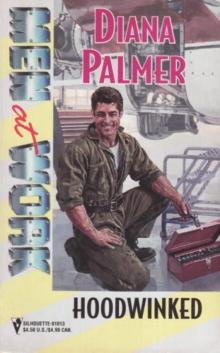 Hoodwinked
Hoodwinked Soldier of Fortune
Soldier of Fortune Rage of Passion
Rage of Passion Winter Roses
Winter Roses Rough Diamonds: Wyoming ToughDiamond in the Rough
Rough Diamonds: Wyoming ToughDiamond in the Rough Protector
Protector Emmett
Emmett True Blue
True Blue The Tender Stranger
The Tender Stranger Lone Star Winter
Lone Star Winter Man in Control
Man in Control The Rawhide Man
The Rawhide Man Untamed
Untamed Midnight Rider
Midnight Rider Trilby
Trilby A Long Tall Texan Summer
A Long Tall Texan Summer Tangled Destinies
Tangled Destinies LovePlay
LovePlay Blind Promises
Blind Promises Carrera's Bride
Carrera's Bride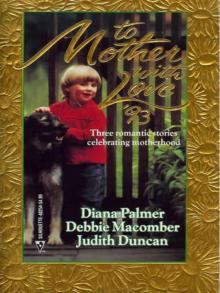 Calamity Mum
Calamity Mum Long, Tall Texan Legacy
Long, Tall Texan Legacy Bound by Honor
Bound by Honor Wyoming Winter--A Small-Town Christmas Romance
Wyoming Winter--A Small-Town Christmas Romance Mystery Man
Mystery Man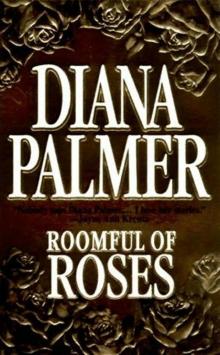 Roomful of Roses
Roomful of Roses Defender
Defender Bound by a Promise
Bound by a Promise Paper Rose
Paper Rose If Winter Comes
If Winter Comes Circle of Gold
Circle of Gold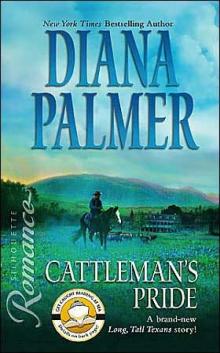 Cattleman's Pride
Cattleman's Pride The Texas Ranger
The Texas Ranger Lady Love
Lady Love Unlikely Lover
Unlikely Lover A Man of Means
A Man of Means The Snow Man
The Snow Man The Case of the Missing Secretary
The Case of the Missing Secretary Harden
Harden Tough to Tame
Tough to Tame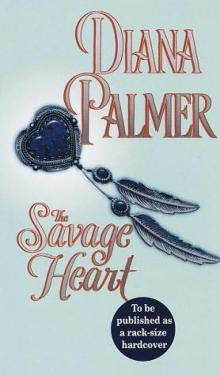 The Savage Heart
The Savage Heart